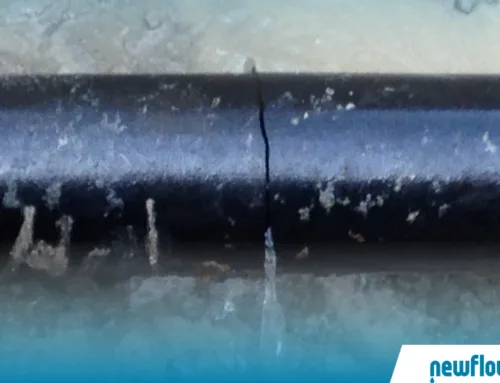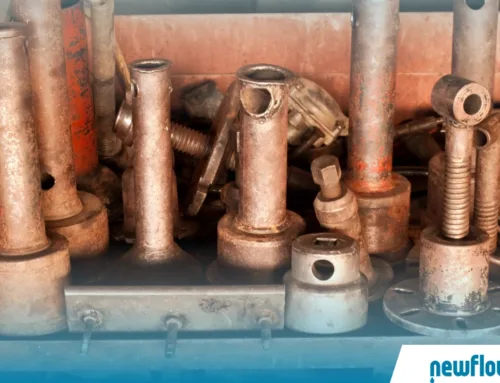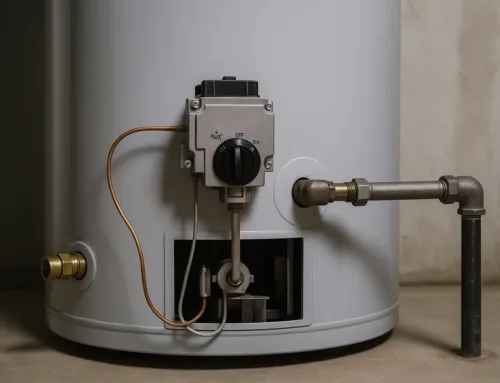Slab leaks are one of the most serious hidden plumbing problems a homeowner can face. They develop when water pipes beneath your concrete foundation crack, burst, or corrode, allowing water to leak unnoticed for weeks or even months. Left untreated, a slab leak can cause high water bills, structural damage, and even mold growth. One of the smartest ways to protect your home is by learning how to recognize the early warning signs before the damage spreads. Among the most reliable methods, paying attention to sudden changes in water bills often reveals hidden leaks that would otherwise stay unnoticed. This article will walk you through the most common signs, why they matter, how to spot a slab leak, and what you can do to protect your home. By the end, you’ll feel confident about spotting the signs early and taking action before it becomes a costly disaster.
What Is a Slab Leak and Why Does It Happen
A slab leak occurs when the water pipes running beneath your home’s concrete foundation develop leaks. Because the pipes are hidden under solid concrete, the leak is not visible, and damage can spread slowly and silently. These leaks often happen due to pipe corrosion, soil shifting, poor installation, or high water pressure.
Homes with older plumbing or those built on shifting soil are at higher risk. Understanding what a slab leak is helps homeowners connect the dots when they see small but strange issues around the house.
Why Early Detection Matters
Catching a slab leak early can save you from spending thousands of dollars in repairs. When water seeps under the foundation, it weakens the concrete, damages the flooring, and promotes mold growth. In some cases, a slab leak left untreated can make a home unsafe to live in.
Early detection means fewer repairs, less stress, and more money saved. It also protects the long-term value of your home. For most families, the first warning sign comes from their water bill, making it one of the easiest ways to catch the problem early.
Unexplained Increase in Water Bills
If your water usage habits have not changed, but your bill suddenly spikes, it may mean water is escaping underground. Many homeowners overlook this sign, assuming it’s a billing error. But in reality, a sharp and unexplained rise in your water bill is often the earliest sign of a slab leak.
Keep track of your monthly bills. If they steadily climb without explanation, it’s worth investigating. Catching the problem at this stage can save you from costly structural repairs later.
Water Pooling or Damp Spots on Floors
Another strong clue is dampness where it shouldn’t be. Water rising through cracks in the slab or soaking flooring materials can leave small puddles or damp spots. Tile and carpet floors may show dark stains, while hardwood may start warping or cupping.
This symptom is a major red flag because water has already made its way through the foundation. Once you notice damp flooring, the leak has likely been active for some time, and professional inspection should be scheduled quickly.
Hot Spots on the Floor
When a hot water line beneath the slab leaks, the heat often transfers upward, creating warm areas on your floor. If you step barefoot and feel an unusually hot patch, especially in the kitchen or bathroom, that’s a classic sign of a slab leak.
While other heating systems can sometimes cause warm spots, a sudden change in floor temperature should not be ignored. This is one of the more unique and noticeable signs that points directly to a leak beneath the concrete.
Low Water Pressure in Your Home
If faucets, showers, or appliances suddenly deliver weaker water flow, it may be due to water escaping underground. A leak reduces the amount of water reaching your fixtures, leaving you with inconsistent pressure.
Although clogs and municipal water issues can also lower pressure, slab leaks are a common hidden reason. If low pressure is combined with other warning signs, the chances are even higher that you’re dealing with a slab leak.
Sounds of Running Water When No Fixtures Are On
Hearing water movement when no taps are open can be unsettling. It often means water is moving through pipes underground, escaping into the soil or foundation. This sound might be faint, like a soft hiss or trickling noise, and is usually more noticeable at night when the house is quiet.
Trust your ears. If you hear water when no one is using it, check your water meter and consider calling a professional to confirm whether a slab leak is the cause.
Cracks in Walls, Floors, or Foundation
Water leaking under your home can cause soil movement and foundation stress. Over time, this creates visible cracks in your flooring, baseboards, or even walls. While small cracks can come from normal settling, new or widening cracks combined with other symptoms suggest water damage.
Foundation cracks are not just cosmetic. They can weaken the entire structure of your home, which makes addressing the source of the leak critical for long-term safety.
Musty Odors and Mold Growth
Moisture trapped beneath flooring or inside walls creates the perfect environment for mold. If you notice musty odors, dark patches, or mildew growth in unusual places, it may point to a slab leak. Mold can spread quickly and also pose health risks, especially to children and people with breathing issues.
By the time mold appears, the leak has usually been active for weeks or months. Don’t treat only the surface mold, fixing the underlying leak is the real solution.
Preventive Steps to Avoid Slab Leaks
While some slab leaks are unavoidable, homeowners can reduce risk by taking a few preventive steps:
- Monitor water bills closely for sudden changes.
- Schedule routine plumbing inspections, especially in older homes.
- Keep water pressure at safe levels to avoid pipe stress.
- Install quality piping materials during renovations or repairs.
- Address soil drainage issues around the foundation.
Staying proactive keeps your plumbing system healthy and reduces the chance of unexpected leaks.
How Professionals Detect Slab Leaks
Plumbers use specialized equipment to locate leaks without unnecessary digging. Methods include electronic listening devices, pressure testing, and thermal imaging to detect hot spots. These tools allow professionals to confirm a leak and pinpoint its exact location.
You may try our service: New Flow Plumbing Roseville
Modern detection techniques are non-invasive and save both time and money by avoiding unnecessary damage to flooring or walls. Knowing how experts detect leaks also reassures homeowners that the process can be efficient and precise.
What to Do If You Suspect a Slab Leak
If you’ve noticed any of the warning signs, the first step is to confirm the problem by checking your water meter. Turn off all water in the home and see if the meter continues moving. If it does, water is leaking somewhere.
At this point, it’s best to call a licensed plumber who can perform proper tests and confirm whether a slab leak exists. Waiting too long only increases damage and repair costs. Acting quickly keeps repairs manageable and protects your home from serious damage.
Long-Term Damage If Ignored
Ignoring a slab leak can lead to severe and costly consequences. Water damage weakens the foundation, warps flooring, encourages mold growth, and may even compromise the safety of the building. The longer it goes undetected, the more expensive the repairs will be.
What could have been a small plumbing fix can easily grow into foundation repair, flooring replacement, and mold remediation. This is why recognizing early warning signs and acting fast is the best protection for homeowners.
Final Thoughts
Knowing how to spot a slab leak early is one of the smartest steps you can take to protect your home. By watching for signs such as rising water bills, damp floors, hot spots, low pressure, or musty odors, you can catch the problem before it becomes a disaster. Among all signs, monitoring your monthly bill remains the simplest and most effective way to notice trouble early.
Being proactive not only saves you money but also protects your family’s health and the long-term value of your property. If you suspect a slab leak, don’t wait,take action right away and keep your home safe from hidden water damage.






![How Much Does a Plumber Cost in Sacramento? [Pricing Guide]](https://plumbersacramento247.com/wp-content/uploads/2025/08/How-Much-Does-a-Plumber-Cost-in-Sacramento-1-500x383.jpg)




